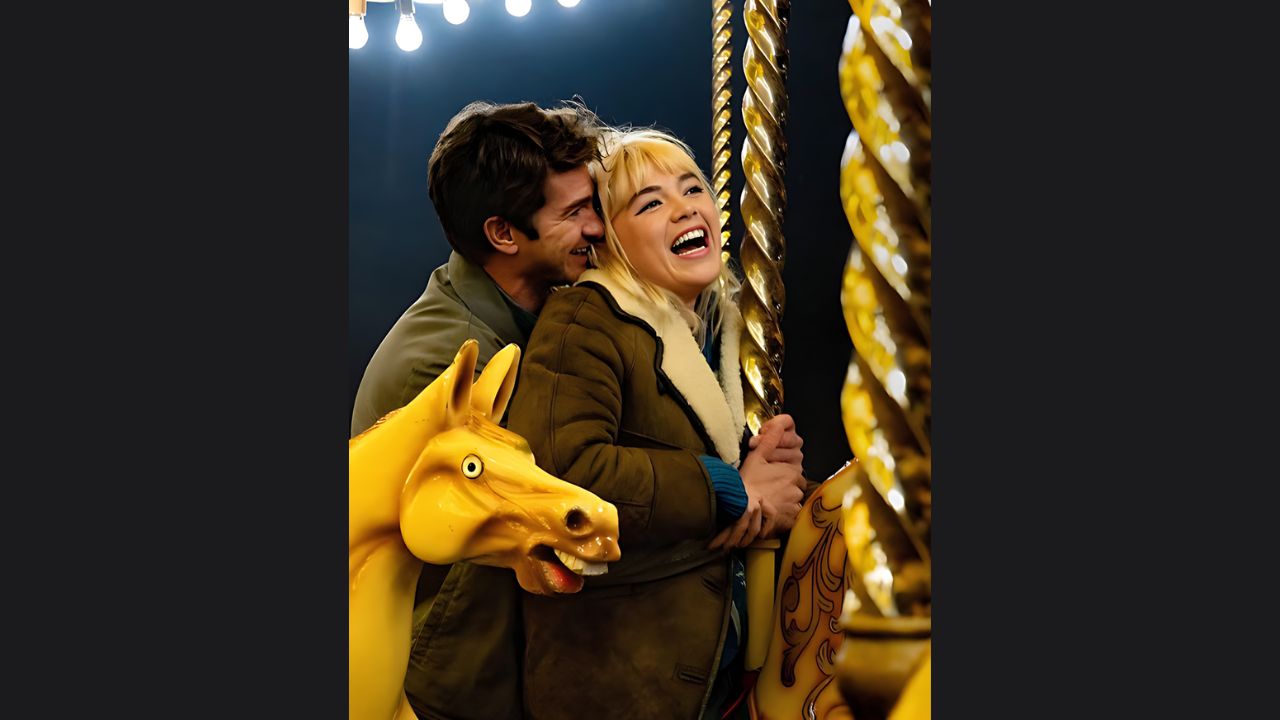The movie “We Live in Time” features the impressive talents of Florence Pugh and Andrew Garfield, who portray a contemporary British couple facing a medical crisis. The film, which premiered at the Toronto International Film Festival, takes a non-linear approach, weaving together different timeframes and memories to create a deeply poignant narrative. Inspired by the Lou Reed song “Magic and Loss (The Summation),” the film explores the relationship between Almut (played by Pugh), a passionate and ambitious chef, and Tobias (played by Garfield), a sensitive and attentive marketing executive. As the pair establishes their life together in South London’s Herne Hill, the film delves into their pasts, desires, and the challenges they face as individuals and as a couple.
The film revolves around the story of a couple, Tobias and Almut, whose differing views on starting a family eventually lead them to have a daughter, Ella, after struggling to conceive. However, their seemingly idyllic life takes a tragic turn when Almut is diagnosed with a recurrence of ovarian cancer. What sets this film apart is its unique approach to storytelling, dividing their narrative into three distinct time periods and re-splicing them together in an unconventional manner, which adds an intriguing layer to the storytelling.
The cinematography by Stuart Bentley beautifully captures the defining moments of the couple’s decade-long relationship without feeling intrusive, while the performances by the lead actors, Pugh and Garfield, display an achingly palpable chemistry on screen. The characters are portrayed with both charming and flawed qualities, adding depth to their portrayal and making their story more relatable.
Furthermore, the film courageously confronts mortality and the impact of illness on relationships, yet manages to convey a life-affirming message. The narrative, while addressing the inevitable decline, is executed with a tender and truthful touch, leaving a profound impact on the audience. While “We Live in Time” may not offer the same uplifting experience as some other notable films, its unflinchingly honest take on mortality is presented in a way that feels transcendently life-affirming.
